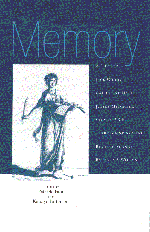Book contents
- Frontmatter
- Contents
- Introduction
- 1 Disturbing Memories
- 2 ‘Turning a Blind Eye’: Memories of Empire
- 3 Memory and the Making of Fiction
- 4 Memory in Oral Tradition
- 5 Memory and Psychoanalysis
- 6 When Memory Fails
- 7 How Brains Make Memories
- 8 Memory and Neural Networks
- Notes on Contributors
- Acknowledgements
- Index
1 - Disturbing Memories
Published online by Cambridge University Press: 05 June 2012
- Frontmatter
- Contents
- Introduction
- 1 Disturbing Memories
- 2 ‘Turning a Blind Eye’: Memories of Empire
- 3 Memory and the Making of Fiction
- 4 Memory in Oral Tradition
- 5 Memory and Psychoanalysis
- 6 When Memory Fails
- 7 How Brains Make Memories
- 8 Memory and Neural Networks
- Notes on Contributors
- Acknowledgements
- Index
Summary
Darwin's legacy
Charles Darwin is most famous as a natural historian, but his work had a profound influence on our understanding of memory because of his conception of biological time. Darwin set biology in a much longer context of time than had previous religious versions of creation and biological history, and so he created a puzzle: what is the relation of natural time, measured in millions of years, to the human historical time-frame in which we measure, say, the growth of classes or the development of cities in decades and centuries? Historical time seems a mere blip on the evolutionary scale. As the psychologist William James noted, our personal experiences of time are even more inconsequential in the Darwinian scheme of things, since personal events usually span mere days and months.
Moreover, Darwin gave natural time a distinctive character: he depicted it as conflictual and competitive. The concept of the survival of the fittest came late in Darwin's thinking, and he was ambivalent about the idea. He did not, like Alfred, Lord Tennyson, imagine nature ‘red in tooth and claw’, but he did think that what we call today an ecosystem depended on the ever-changing strengths and weaknesses of the species it contained, and that extinction and species failure were part of this natural order. Time is a destroyer as well as a creator.
- Type
- Chapter
- Information
- Memory , pp. 10 - 26Publisher: Cambridge University PressPrint publication year: 1998
- 15
- Cited by

